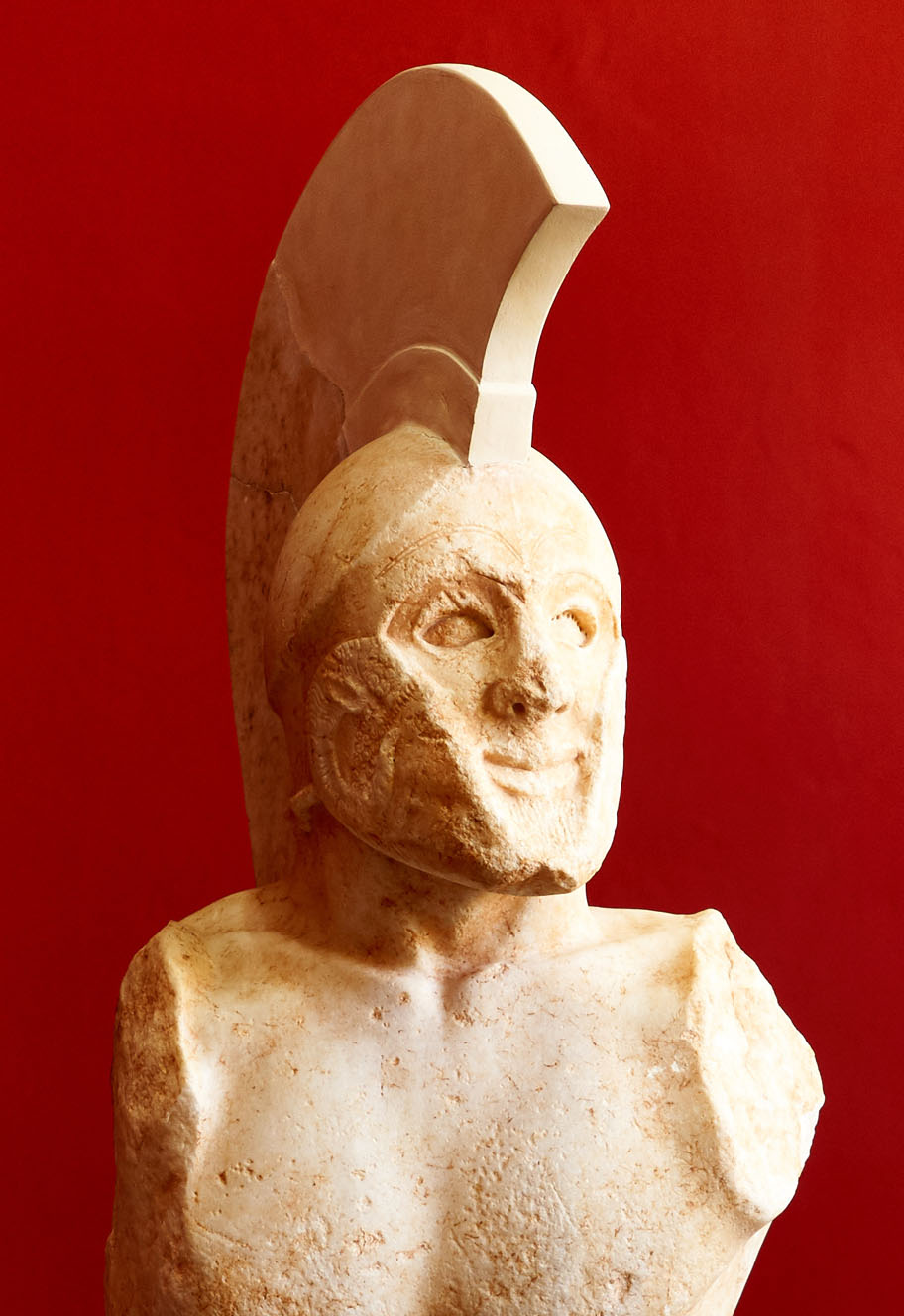Leonidas I
Born:
C. 540 BCE
Died:
480 BCE
Leonidas I was a warrior king of the Greek city-state of Sparta, best known for his leadership during the Battle of Thermopylae against the Persian Empire. His bravery and sacrifice have become legendary. Here are key aspects of Leonidas I's life and contributions:
Background and Early Life: Leonidas was born into the Agiad royal family of Sparta, around 540 BCE. He received rigorous military training from a young age, as was customary for Spartan boys.
Battle of Thermopylae: Leonidas is most famous for his role in the Battle of Thermopylae in 480 BCE. Leading a small force of Spartans and other Greek allies, he defended the narrow pass of Thermopylae against the much larger Persian army of Xerxes I for three days. Although ultimately defeated, Leonidas and his men inflicted heavy losses on the Persians and bought valuable time for the Greek city-states to prepare for further resistance.
Bravery and Sacrifice: Leonidas's leadership and bravery at Thermopylae became legendary. Despite being vastly outnumbered, he and his Spartans chose to stand and fight to the death rather than retreat or surrender. Their sacrifice has been celebrated as a symbol of courage and defiance against overwhelming odds.
Legacy: Leonidas's stand at Thermopylae became a symbol of Spartan valor and the defense of freedom against tyranny. His sacrifice inspired later generations of Greeks and continues to be commemorated in literature, art, and popular culture.

Quick Facts
- Leonidas was one of the two kings of Sparta, belonging to the Agiad dynasty.
- The Battle of Thermopylae is depicted in the film "300" and has become the subject of numerous books, films, and other media.
- Leonidas's sacrifice at Thermopylae is celebrated in modern Greece with monuments and memorials.
- His leadership and bravery have inspired countless individuals and continue to be revered as examples of courage in the face of adversity.
Further Reading
Art &
Architecture
Ancient Greek art and architecture, with its harmonious proportions and timeless elegance, continue to inspire awe and admiration millennia later.
Discover
Greek Mythology & Mythical Characters
Greek mythology, a rich tapestry of gods, heroes, and mythical creatures, captivates the imagination with its tales of love, betrayal, and epic adventures that delve into the depths of the human psyche.
Discover
Ancient Greek History
Ancient Greek history, marked by remarkable achievements in democracy, philosophy, and warfare, shaped the foundation of Western civilization, leaving an indelible legacy of innovation and cultural influence that continues to resonate to this day.
Discover
Ancient Greek Olympics
The ancient Greek Olympics, held in Olympia every four years, celebrated athleticism, unity, and cultural pride, serving as a testament to the enduring spirit of competition and excellence that transcends time and borders.
Discover
Ancient Greek Wars
Ancient Greek wars, such as the Persian Wars and the Peloponnesian War, were pivotal conflicts that shaped the course of history, highlighting the struggle for power, independence, and the clash of civilizations in the ancient Mediterranean world.
Discover
Ancient Greek Culture and Society
Ancient Greek culture and society, characterized by its emphasis on art, philosophy, and civic engagement, fostered a vibrant intellectual and social landscape where innovation flourished, democracy thrived, and the pursuit of knowledge and excellence was celebrated as fundamental values of civilized life.
Discover